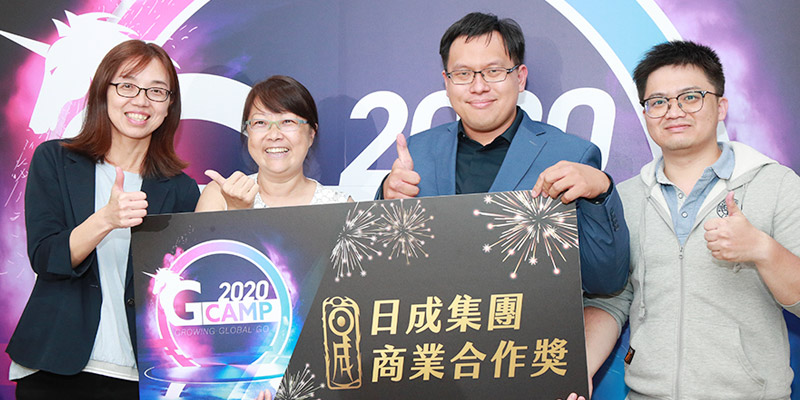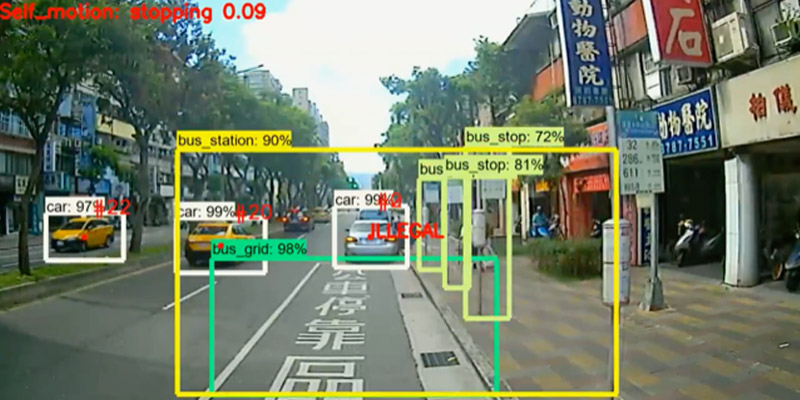

The Corporate Startup Engagement (CSE) model is especially important in the ever-changing world of the future, because working with a startup partner can not only help optimize internal processes, but also further develop and deploy new markets. For example, recognizing the importance of upgrading the digital industry, Hermin Textile invited LeadBest to serve as a consultant for the Fashion Resource Innovation Platform (TEXTIP) and to help build a new digital team that will digitize the fabric patterns it has produced. Next, Hermin Textile introduced Google's artificial intelligence technology to recommend new products based on customers' order history and preferences. In addition, Hermin Textile has developed a new customer segment and business model, where small and medium-sized designers can search for fabrics by image and order fabrics directly from the platform.
In the case of Hermin Textile, we can clearly see that for Taiwanese companies that are not familiar with digital technology, as long as they identify the direction of their transition, the introduction of digital technology and collaboration with external partners such as startups can really help to enhance their core competitiveness. For startups, this kind of direct collaboration not only helps them to understand the needs of the industry, but also stimulates the sparkling sparks.
So, how do you choose the right partner? Please refer to the “2020 The State of Taiwan's Corporate Innovation and Startup Ecosystem” to learn more about the profile of Taiwanese companies investing in startups, as well as the profile of Taiwan's startups that have received funding, and work with our partners to build the future.
According to the "2020 The State of Taiwan's Corporate Innovation and Startup Ecosystem ", in 2019, 90 startups that received "equity swap" investments were identified through publicly available data (including news media, quarterly/annual reports of the National Development Fund, and publicly disclosed startup investments), and among them, 18 fundraising new startups received funding from sources including direct investment from Taiwanese enterprises. In terms of industries, FinTech was the most popular, followed by the E-Commerce and Retail industry and B2B Enterprise Software Solutions industry. Most fundraising startups were established after 2016. From the perspective of fundraising rounds, Taiwanese enterprises preferred to invest in startups beyond the Series A stage, indicating that they are mainly interested in startups that already have a working and proven business model.
Looking at the background of Taiwanese corporate investors, there are 20 corporate investors in 2019, which are spread across industries such as finance, retail, information and communications, and semiconductor industries. The types of new startups in which companies invest varied according to industry.
Taiwan's financial industry is committed to developing open banking and building a new financial circle centered on consumer life. As a result, Taiwan's financial sector prefers to invest in areas related to financial technology, B2B enterprise software solutions, automotive technology, blockchain, information security, e-commerce and retail. For example, Fubon Financial Holding Venture Capital, which focuses on biotechnology and pharmaceuticals, cultural and creative industries, and technology businesses, invested in OmniEyes to improve its grasp of automotive technology.

In the electronics industry, MediaTek is bullish on the long-term care market and has invested in FaceHeart in order to accelerate its transformation into a smart enterprise. As we can see, the electronics industry prefers to invest in startups involved in B2B enterprise software solutions, medical technology and pharmaceuticals, hardware and IoT, information security (including blockchain), advertising, content and marketing. Retailers primarily invest in startups that help drive product and service momentum. As a result, major investment areas include e-commerce retail, automotive technology, advertising, content and marketing. For example, last year, Pinkoi which is a designer shopping websites joined hands with Cherubic Ventures with the goal of helping 10 local brands in Taiwan to grow to scale and internationalization within two years. The first recipient of the grant is "inBlooom", a printed fabric design brand from Dadaocheng, Taipei.
The only software companies participating in startup investments in 2019 were Wanin Games and YSI Advisors Corporation, and the startup teams that received investments were StyleMap and ALPHA. As for the media industry, only StockFeel, which was committed to building a financial arena on the Internet, invested in BZNK to enhance its grasp of the P2P business receivables. Chunghwa Telecom, which was actively developing self-driving vehicles and other related fields, was also investing in a shared technology and media platform, USPACE, in 2019.
It is worth noting that Taiwanese companies can not only find suitable startup partners through the CSE model, but also identify potential partners from various startup accelerators, or even set up their own accelerators to interact more closely and deeply with the startup teams.
In the "2020 The State of Taiwan's Corporate Innovation and Startup Ecosystem ", startup accelerators that offered investment funds, tiered applications, incubation courses, Demo Day elements (three or more of the four elements were offered), and startup teams incubated at the accelerators were clearly listed. The report will be of great value to companies that want to join forces with startups in the future through the CSE model.
According to statistics, there were 17 startup accelerators meeting these specifications in 2019. There were only 7 startup accelerators that had the four elements of investment funds, tiered applications, incubation courses and Demo Day. However, there were only 2 accelerators that adopted the approach of "investment as shortlisted," MOX (Mobile Only Accelerator), which focused on the mobile market in Southeast Asia, Eastern Europe, South America and India, and SparkLabs Taipei, which focused on IoT, hardware, artificial intelligence and machine learning and AR/VR.



















MOX was founded in 2016 and is run by Mobile Only Accelerator Ltd, which recruits trainees twice a year. The training includes providing data analysis SDK, mobile service promotion and payment platform, brand building assistance, coaching for new startups on how to conduct dialogues with investors, presentation roadshow in Southeast Asia, and demonstrations in Taipei and Singapore. In 2019, MOX recruited a total of 19 startups to be incubated.
SparkLabs Taipei, on the other hand, was founded in 2018 and is run by SparkLabs Global Ventures. Also, it recruits trainees twice a year. The training includes assigning 4 to 6 instructors to each team, providing office space, training courses, and providing legal and accounting services. In 2019, SparkLabs Taipei recruits 10 startups to be incubated, 9 of which are Taiwan-based startup teams, including: Funnow, a real-time booking platform for urban entertainment; FOX-TECH, an IoT temperature and humidity sensing platform; Influenxio, a micro-influencer marketing media platform; VIASWEAT, an Asian female functional apparel platform; Auriga Security, an AI data collector; GLIASTUDIO, an AI auto-generator for marketing videos; VesCir, an AI portable skin measurement device; baypay, a blockchain payment service platform; and LUCID, an AI 3D vision platform by collaborating startups from Taiwan and USA.
For Taiwanese companies that want to link the new business ecosystem through an accelerator, they can not only look for potential partners that meet their business needs from the new startups incubated in the accelerator, but also further engage in the accelerator model by sponsoring the venue, entrusting the business to others, or operating the business on their own, which means they can start cooperation with new startups as early as possible. For example, MIGHT Electronic co. Ltd is looking for suitable startup teams by both operating its own startup accelerator and sponsoring the venue. In addition, Asia Pacific Telecom, HTC, Wanin Games, Gamania, XPEC, Interserv, Wayi, and Shin Kong Financial Holdings have all searched for suitable managers or staff to maintain and operate their startup accelerators on their own. AUO, E.Sun Commercial Bank, Eastern Online Co., Ltd, Breaktime Inc., ZA SHARE, Team Ear Music, Flytech, and Lantech commissioned experienced third-party accelerators to help customize, screen, and incubate new startups in response to corporate needs.
All in all, for Taiwanese companies that want to gain a head start and a foothold in a highly uncertain market environment, the CSE model not only helps companies to accelerate their mastery of emerging areas, but it is also the key to creating second growth curves. Now, the company should begin to accelerate its transformation through the CSE business model and work with new partners to open up new markets, build new businesses and cultivate new customers to create a win-win situation for all.